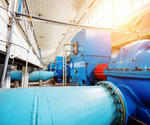| |
| |
|
The 411 for Water Treatment Professionals
|
|
|
|
|
| |
| |
| |
|
Wastewater Treatment Plants Must Be Digitally Transformed to Reduce Costs and Improve Efficiency
|

The main objective of wastewater treatment plant (WWTP) management is to achieve the required standards of treated water quality at the lowest possible operating cost and with the minimum environmental impact. This challenge is particularly important in a context in which WWTP operators must be able to process and transform the immense amount of data from multiple and heterogeneous sources into real actions.
|
|
| |
|
Baltimore Set to Treat Wastewater From Ohio Train Derailment
|

Baltimore will be treating the wastewater from the Ohio train derailment that happened earlier this year but not disposing of it. The privately owned company Clean Harbors here in Baltimore has confirmed the treatment of the wastewater. Baltimore is set to receive 75,000 gallons of hazardous wastewater from the aftermath of the train derailment in East Palestine, Ohio.
|
|
| |
|
|
| |
| |
| |
|
WWTP Gets a Grip on Grease and Powers Up…
|
Grease can cause big problems, but when managed properly, it can also provide big dividends as a renewable energy source. The wastewater treatment plant in West Lafayette, Indiana, has grease in abundance and is making the most of it.
|
|
| |
|
|
| |
| |
| |
|
New UBC Water Treatment Zaps “Forever Chemicals” for Good
|
Engineers at the University of British Columbia have developed a new water treatment that removes “forever chemicals” from drinking water safely, efficiently – and for good. “Think Brita filter, but a thousand times better,” says UBC professor Dr. Madjid Mohseni, who developed the technology.
|
|
| |
|
|
| |
| |
| |
|
Eliminating Non-compliance Risks With a Better Wastewater Process
|
Removing and treating wastewater is an essential service for every community, no matter the source (industrial, residential or agricultural). Unfortunately, today, 80% of wastewater is discharged to the environment with minimal to no treatment. Proper treatment ensures that harmful constituents are removed from the water safely without devastating environmental and social impacts.
|
|
| |
|
Nearly 4.7B Gallons of Wastewater Dumped in Pearl River, Court Documents Show
|
A recent federal court filing shows nearly 4.7 billion gallons of untreated or partially treated wastewater was dumped into the Pearl River between March 1, 2020 and February 28, 2022. Last week, attorneys provided the U.S. District Court with an update on its efforts to implement a more than decade-old sewer consent decree.
|
|
| |
|
|
| |
|
|